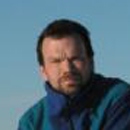Academic Editors
The following people constitute the Editorial Board of Academic Editors for PeerJ. These active academics are the Editors who seek peer reviewers, evaluate their responses, and make editorial decisions on each submission to the journal. Learn more about becoming an Editor.

Mikhail S Gelfand
Vice-Director for Science at the Kharkevich Institute for Information Transmission Problems. Professor of the Lomonosov Moscow State University, Skolkovo Institute of Science and Technology, and Higher School of Economics. Member of Academia Europaea. Recipient of the 2007 Baev Prize of the Russian Academy of Sciences. Member of Editorial Boards of PeerJ and Biology Direct.

Shawn M Gomez
Professor and Associate Chair for Research in the Joint Department of Biomedical Engineering at UNC-CH and NCSU and Professor in the Department of Pharmacology at UNC-CH. Previous Florence Gould Scholar and Pasteur Foundation Fellow. Current research interests in systems and synthetic biology, bioimage informatics, and network science applied to biology. Broader interests in translational medicine and the fostering of innovative solutions to problems in healthcare.

Joao B.T. Rocha
Professor of Biochemical Toxicology at the Universidade Federal de Santa Maria-Department of Biochemistry and Molecular Biology CCNE, 97105-900, Santa Maria, RS, Brazil. Associate Regular Member of International Centre for Theoretical Physics, Trieste.

Claus O Wilke
Professor and Department Chair, Department of Integrative Biology, The University of Texas at Austin. Received his PhD in Theoretical Physics from the University of Bochum, Germany, in 1999. Postdoc at Caltech, 2000-2005.

Tatiana V Tatarinova
Fletcher Jones Endowed Chair in Computational Biology and Associate Professor of Biology, University of La Verne. Member of The Russian-American Science Association Coordinating Committee.

Fabien Knoll
Fabien Knoll is a Senior Research Fellow at the National Museum of Natural Sciences in Madrid, Spain. His research interests focus on the palaeobiology and evolution of archosaurs.

Xavier Pochon
Team Leader, Molecular Surveillance, Biosecurity Group, Cawthron Institute, New Zealand.
Associate Professor, Institute of Marine Science, University of Auckland, New Zealand.
My research at the Cawthron Institute is highly applied and consist of developing multi-trophic molecular tools for environmental monitoring of marine industries (e.g. aquaculture farms, marine biosecurity in ports and marinas, and deep-sea exploration).
At the University of Auckland, I combine 'real-world' and 'blue-sky' research applications, including; i) investigating functional underpinnings of Symbiodiniaceae in coral reef ecosystems, ii) characterizing microbiomes in aquaculture and natural settings, iii) measuring eDNA and eRNA decay rates in marine invertebrates and vertebrates, iv) studying preferential settlement of marine invasive species associated with marine plastic debris, and v) exploring the diversity and dynamics of open-ocean plankton communities in the Pacific and beyond.

Gerard R. Lazo
Geneticist with the Crop Improvement and Genetics Research Unit, Agricultural Research Service, Western Regional Research Center, Albany, CA, USA.

Nigel G. Yoccoz
Professor of Statistical Ecology at the Institute of Arctic and Marine Biology of UiT The Arctic University of Norway since 2003. Associate Editor of "Methods in Ecology and Evolution", "Ecography" and "Wildlife Biology", and former associate editors of Ecology and Ecology Letters.

Scott V. Edwards
Alexander Agassiz Professor of Zoology and Curator of Ornithology in the Museum of Comparative Zoology and Professor of Organismic and Evolutionary Biology, Harvard University. President, Society for the Study of Evolution (2011-12); President, Society of Systematic Biologists (2007); President, American Genetic Association (2011). Elected Fellow, American Association for the Advancement of Science (2009); American Academy of Arts & Sciences (2009); Member, National Academy of Sciences (2015).

Marcio R Pie
Associate Professor of Zoology, Universidade Federal do Paraná, Brazil.

Mario Alberto Flores-Valdez
Dr. Mario Alberto Flores-Valdez is a Professor in the Medical and Pharmaceutical Biotechnology Unit, CIATEJ, A.C., Guadalajara, Jalisco, Mexico (2007-present). He is a member of the National System of Researchers (SNI), and a member of the Mexican Academy of Sciences. He was a Stanford University Medical Center postdoctoral fellow (2004-2007), where he received a Dean's Fellowship Award (2006) to conduct research on Tuberculosis. He worked in UNAM as Research Assistant for Prof. Jaime Mora (2004) and Prof. Emundo Calva (2003). He has received a Ph.D. in Biochemistry from UNAM (1999-2003), a M.Sc. in Molecular Biology and Genetic Engineering from UANL (1996-1999) and a B.Sc. from Universidad de Sonora (1991-1996) in Chemistry and Biology. He received fellowships from CONACYT for M.Sc. and Ph.D. studies and in M.Sc. and B.Sc. has received Diplomas as Best Student. He has expertise in Tuberculosis, particularly in developing recombinant BCG strains. He has been PI for 7 grants from 2008 to date, focused in studies about tuberculosis vaccine development and basic aspects of mycobacterial physiology.

